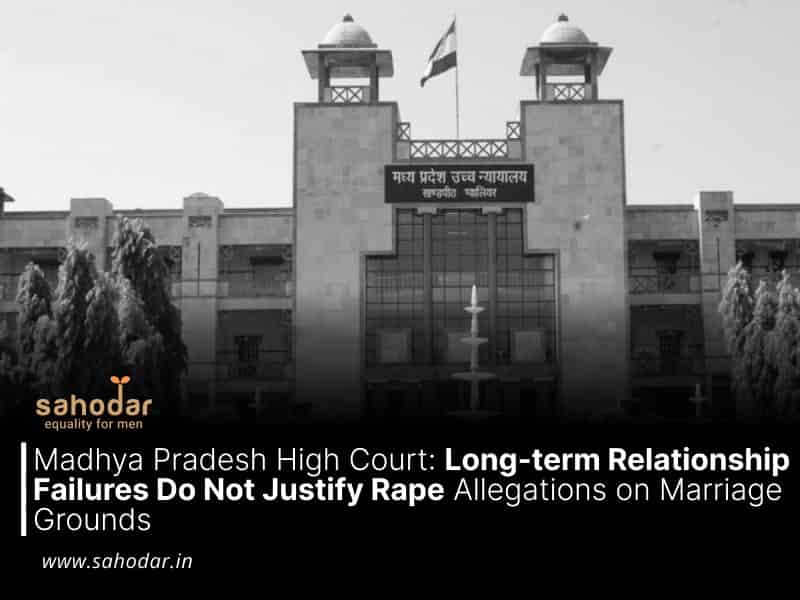At a young age, a couple may believe that they are in love and their relationship will lead to marriage; however, if it fails, the woman cannot lodge an FIR saying rape has been committed, the Court said.
A woman cannot claim the offence of rape merely because a long-term consensual relationship did not result in marriage, the Madhya Pradesh High Court ruled while dismissing a criminal case against a man accused of rape under the pretext of marriage.
The Court observed that both parties willingly entered a ten-year relationship but ultimately parted ways as the man decided against marriage.
Justice Sanjay Dwivedi highlighted that both the Supreme Court and the High Court have consistently maintained that such relationships cannot be construed as rape.
The judge further stated that a woman cannot file a rape case simply because the youthful assumption that a long-term physical relationship would inevitably lead to marriage is disproven.
“In the young age when a boy and a girl attracts towards each other and they flow in emotions and believe that they love each other, normally they carry impression that their relationship will naturally be led to marriage. However, sometimes it fails, and the girl, considering herself to be betrayed and deceived, cannot lodge the FIR saying that rape has been committed with her,” the Court said.
The Court addressed a petition filed by a man seeking to quash a criminal case from 2021, in which he was accused of rape based on a false promise of marriage.
The complainant reported to the police that she and the accused had been in a relationship since high school, eventually engaging in physical relations until around 2020.
She claimed that during their relationship, the man promised to marry her. However, the relationship ended when he refused to follow through on this promise.
After informing her father, a criminal case was filed against the man.
In response, the man filed a petition with the High Court to dismiss the case, asserting that their relationship had been consensual.
The High Court observed that the complainant might have had grounds to file a complaint in 2010 when their physical relationship began if it was based on the promise of marriage. However, since the relationship continued until 2020 without a complaint until 2021, when the man refused to marry her, the Court found it difficult to believe that the physical relationship had persisted under a false promise of marriage.
“In the facts and circumstances of the present case, it is difficult to sustain the charge levelled against the petitioner that he developed physical relation with the prosecutrix on a false promise of marriage. It is also difficult to hold sexual intercourse in the course of a relationship, which continued for over 10 years, as ‘rape’ especially in the facts of the complainant’s own allegation,” the Court said.
The Court also reiterated that there is a difference between a “false promise of marriage” and a breach of a genuine promise to marry.
“There may, of course, be circumstances, when a person having the best of intentions is unable to marry the victim owing to various unavoidable circumstances,” the Court said.
In such cases, a woman cannot assert that she was under a misconception of fact when she entered into a physical relationship, the Court added.
“In order to come within the meaning of the term ‘misconception of fact’, the fact must have an immediate relevance. Section 90 IPC cannot be called into aid in such a situation, to pardon the act of a girl in entirety,” the Court explained.
The Court proceeded to grant the petition and dismissed the criminal case against the petitioner (accused man).
“The present case does not come within the definition of rape as defined in Section 375 of IPC because consensual relationship and affair between the parties are apparent on the face of the record and admitted by the prosecutrix herself and therefore if ultimately their relationship could not culminate into marriage and the promise made by the petitioner was not fulfilled by him, it cannot be said that consent given by the prosecutrix for developing physical relation was obtained by the petitioner on the false pretext of marriage,” the Court found.

